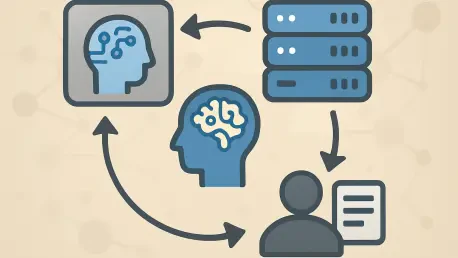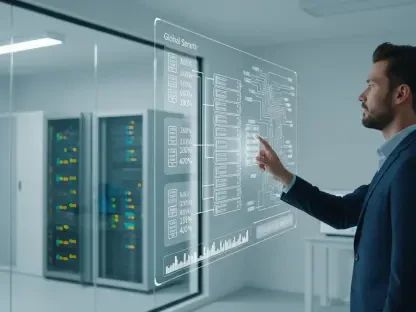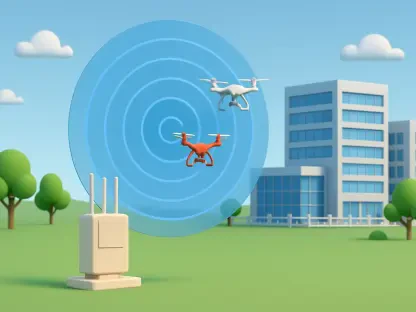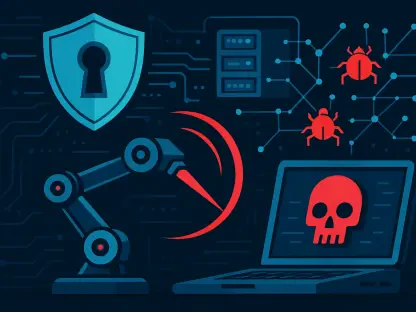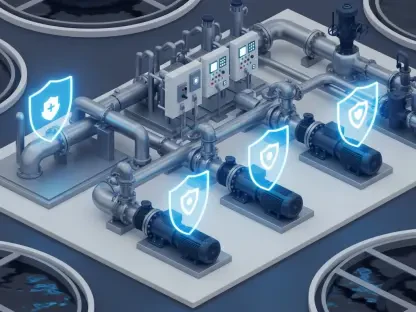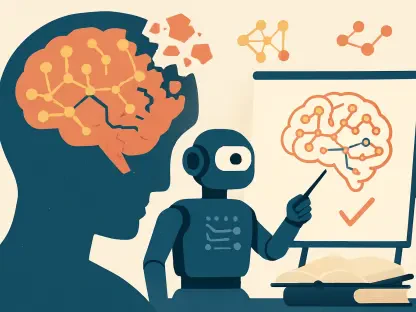In the rapidly evolving landscape of artificial intelligence, a groundbreaking framework known as the Model Context Protocol (MCP) is redefining how Large Language Models (LLMs) connect with real-world data and tools. This open standard facilitates dynamic, real-time interactions for AI agents, enabling them to access structured information and perform tasks with unprecedented accuracy and relevance. From enterprise data management to developer workflows, MCP is becoming an indispensable backbone for autonomous, context-aware applications. Picture an AI system that doesn’t just rely on static training data but adapts instantly to live inputs, whether personalizing customer experiences or enhancing coding efficiency. This article explores the leading MCP solutions shaping the AI ecosystem, delving into their unique capabilities and transformative potential across various sectors. Prepare to uncover how these innovative tools are setting new benchmarks for technology integration and driving the next wave of AI advancements.
Decoding the Power of MCP
In today’s tech-driven environment, understanding the Model Context Protocol (MCP) is essential for grasping the future of AI integration. MCP serves as a vital link between LLMs—such as those powering advanced chatbots—and external data sources or operational systems. Unlike traditional AI models constrained by preloaded knowledge, MCP equips AI with the ability to interact with real-time context, fostering responsive and intelligent applications. This framework stands out for its simplicity and adaptability, making it a critical asset for organizations aiming to implement smarter, more agile workflows. As adoption accelerates, MCP is increasingly viewed as a foundational technology, comparable to essential systems like version control in software development. Its capacity to bridge the gap between static intelligence and dynamic environments positions it as a cornerstone for innovation, particularly for businesses seeking to stay competitive in a fast-paced digital landscape.
The significance of MCP extends beyond mere connectivity; it addresses a pressing need for immediacy in AI responses. Real-time data access has become a non-negotiable demand across industries, from customer service to data analytics. MCP servers are engineered to deliver structured, low-latency information from diverse sources, ensuring that AI outputs remain accurate and relevant even in rapidly changing scenarios. This capability is particularly transformative for applications requiring instant updates, such as live market analysis or personalized user interactions. Furthermore, MCP offers scalability, allowing seamless integration with a variety of platforms and accommodating the growing needs of enterprises and individual developers. By enabling AI to operate within current contexts rather than outdated datasets, MCP not only enhances functionality but also builds trust in automated systems, paving the way for broader acceptance and implementation across multiple domains.
Cutting-Edge MCP Tools for Enterprises and Developers
For enterprises navigating complex data environments, certain MCP solutions stand out as leaders in secure integration and performance. Tools like K2View GenAI Data Fusion are at the forefront, offering robust multi-source data connectivity through advanced features such as semantic data layers and entity-based virtualization. These technologies ensure that AI can access real-time information while adhering to stringent compliance and governance standards, a crucial factor for large organizations handling sensitive data. Security remains a paramount concern as MCP facilitates AI interaction with critical systems, and solutions in this category incorporate safeguards against risks like data breaches or unauthorized access attempts. By prioritizing both performance and protection, these enterprise-grade tools enable businesses to deploy AI-driven personalization and operational efficiency without compromising on trust or regulatory requirements.
On the developer front, MCP platforms are revolutionizing technical workflows with specialized functionalities tailored to coding and automation needs. Solutions like the GitHub MCP Server transform code repositories into dynamic knowledge hubs, empowering AI to assist with tasks such as pull request reviews and debugging, with reported productivity increases ranging from 25 to 40 percent. Similarly, Microsoft Playwright MCP enhances browser automation by leveraging structured data for more reliable operations like web navigation, surpassing the limitations of older screenshot-based methods. These tools exemplify MCP’s ability to address niche technical challenges with precision, offering developers streamlined processes and significant time savings. By integrating real-time context into development environments, such platforms not only boost efficiency but also foster innovation, enabling coders to focus on creative problem-solving rather than repetitive tasks.
MCP’s Role in Collaboration and Specialized Innovation
Beyond data and development, MCP is making a profound impact on how teams communicate and manage knowledge in professional settings. Platforms integrating MCP, such as Slack, Notion, and Google Drive servers, are redefining collaborative workflows by embedding AI capabilities into everyday tools. Slack’s implementation allows AI to summarize discussions and highlight actionable tasks, enhancing team coordination. Meanwhile, Notion and Google Drive turn static workspaces and file storage into interactive knowledge bases, enabling AI to retrieve and process information in real time for instant reference. These applications demonstrate MCP’s versatility, extending its benefits from operational efficiency to fostering creativity and seamless interaction among distributed teams. By embedding context-aware intelligence into familiar platforms, MCP ensures that collaboration tools keep pace with the demands of modern, fast-moving work environments.
The MCP ecosystem also shines through its capacity for niche innovation, catering to specific challenges with tailored solutions. For instance, Supabase MCP Server supports modern application architectures by bridging edge functions and databases with serverless context delivery, ideal for scalable app development. Additionally, foundational connectors provided by entities like Anthropic offer accessible starting points for integrating popular systems, facilitating local testing for development teams. These specialized tools reflect a broader trend toward customization within the MCP framework, addressing unique needs ranging from database management to experimental setups. As the ecosystem continues to evolve, this adaptability signals even greater potential for bespoke solutions, ensuring that MCP remains a flexible and forward-thinking standard capable of meeting diverse technological demands across industries.
Strategic Insights for MCP Adoption
Looking at the broader implications, adopting MCP solutions demands a strategic approach to balance innovation with risk management. Organizations must prioritize tools that align with specific needs, focusing on key criteria such as data integration capabilities, security features, and performance metrics. Enterprise environments may gravitate toward comprehensive platforms that emphasize governance and compliance, while smaller teams or developers might seek agile, productivity-focused integrations. The flexibility of MCP allows for tailored implementations, but careful evaluation is essential to mitigate challenges like potential security vulnerabilities or system misconfigurations. By aligning MCP adoption with organizational goals and ensuring robust safeguards, businesses can harness the full potential of context-aware AI, driving efficiency and maintaining a competitive edge in an increasingly automated landscape.
Reflecting on the journey of MCP, its emergence as a pivotal link between LLMs and real-world data marked a significant shift in AI capabilities. The strides made by solutions like K2View GenAI Data Fusion set new standards for enterprise security and performance, while developer tools such as GitHub MCP Server redefined productivity benchmarks. Collaborative platforms also played a crucial role, embedding AI into daily workflows with remarkable ease. Moving forward, the focus should shift to refining selection processes, ensuring that chosen MCP tools meet both current demands and future scalability needs. Additionally, investing in ongoing security enhancements will be vital to address evolving risks. As the technology landscape progresses, stakeholders are encouraged to monitor emerging MCP innovations and adapt strategies accordingly, securing a path toward sustained growth and smarter AI integration.
